Interview With Alison McGhee
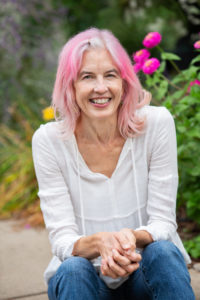
Alison McGhee–author of fifteen picture books, ten children’s novels and graphic books, three young adult novels, and six works of adult fiction–has been a teacher and a mentor to me, is always an inspiration, and has become a dear friend. It was my great pleasure to spend some time talking with Alison on Zoom about her love of poetry, about writing over time, and, of course, about life. Please sit back with a cup of coffee, tea, or a glass of wine, and enjoy. You will come away from this interview feeling like you’ve just met a new friend.
And if you’d like to join Alison in one of her one-day creative writing workshops, please check out her fall offerings here.
Système digestif : diarrhée, nausées. Système musculo-squelettique : douleurs articulaires, douleurs musculaires . SNC et système nerveux périphérique : vertiges (effet secondaire rapporté dans les essais cliniques), augmentation du tonus musculaire, insomnie. Système respiratoire : congestion nasale, pharyngite, rhinite (effet secondaire rapporté dans les études cliniques), sinusite, infections des voies respiratoires, insuffisance respiratoire.
Alison: I’m so honored and happy to be here! It’s always wonderful to see you.
Diane: Thank you. Same here. I was first introduced to you through your project Haiku for You. Can you tell us about it?
Alison: Haiku for You is a project I started a long time ago. Before the earthquake in Haiti, a friend of mine began a school in northern Haiti, primarily for girls. There were almost no schools there at the time. I got involved, sponsoring children and donating money. And I thought it would be a neat thing if I created an ongoing little fundraiser that fed into my love of poetry. I added Haiku For You to my website—send me a photo and I will write and hand-letter a haiku on a piece of heavy card stock and mail it back to you.
The process: I sit down, look at the photo, center myself, write a series of sample haikus and choose one or two that seem to fit the essence of the person I see in the photo—this person unknown to me, but beloved by those who sent me the photo. Haiku for You costs $30 and I send the $30 directly to the school. It’s been a cool little thing.
“Even as a child, certain poems felt as if they were speaking directly to me”
Diane: The tiny gem your wrote for me was one of the most special presents I’ve ever received. I’d love to share it: “Here glows a woman/blooming sunward on the verge/Is she made of joy?”
Alison: I still picture your photo perfectly. There you were with that huge smile! I sensed that this was a woman who had just come into her own and was filled with joy. Your haiku was one of my favorites to write.
Diane: It so moved me because that’s right when I started my blog. It’s like you knew I was on the verge of taking a step out into the world.
So, the haiku leads me into my next venture into Alison world—Poem of the Week. Every Saturday morning you send a heart-opening moment to people’s inboxes. How rare is that?
I often love your little introductions even more than the amazing poems you choose. How did that get started?
Alison: The poem of the week has a long history and evolution. I’ve always loved poetry. Even as a child, certain poems felt as if they were speaking directly to me. I was nine years old or so when I read “Spring and Fall: to a Young Child,” by Gerard Manley Hopkins. It begins with “Margaret, are you grieving/over Goldengrove unleaving?”
Somehow I knew the poem was speaking to the passage of time, something I’ve always been keenly aware of. I have a distinct memory of being a baby and crawling up the stairs after my mother. She was carrying a bucket of paint. I looked down into our living room and I thought, “Remember this, because it’s all going to go by so fast.”
Diane: Wow.
“I began writing those tiny little memoir moments of why this poem? What was in my head at the time I chose it”
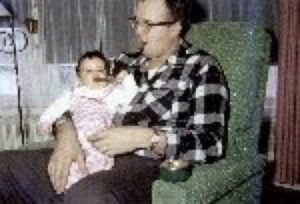 Alison: I was a baby, so I couldn’t have used those words, but that was the sense inside me. As an adult, I once asked my mother, “Did you ever paint the stairs when I was a baby, and were the stairs brown?” And she said, “Yes, I was about to have your sister. You would have been 12 months old. I painted those ugly brown stairs gray.” And so, I know that memory is real.
Alison: I was a baby, so I couldn’t have used those words, but that was the sense inside me. As an adult, I once asked my mother, “Did you ever paint the stairs when I was a baby, and were the stairs brown?” And she said, “Yes, I was about to have your sister. You would have been 12 months old. I painted those ugly brown stairs gray.” And so, I know that memory is real.
Poems have always felt like they were speaking directly to my life and simultaneously saving my life. But until pretty recently, poetry hasn’t been a common form of shared literature in our country. Poets know the importance of poems, but very few books of poetry become bestsellers.
Over twenty years ago, I began sending a poem a week to a few friends. And they would send it to other friends, and then those friends of friends would ask to be added to my little email list. It was five people, then ten people, then fifty people. Now it’s hundreds of people. When I began a blog fifteen or so years ago, I began posting the poem of the week there as well. Five or six years ago, I began writing a tiny accompanying story about why I’d chosen that particular poem and what was in my heart that week. I often hear from people that they look forward to the tiny memoir pieces more than to the poem.
Diane: Totally.
Alison: It’s interesting to me because I’ve been a writer my whole life, but I rarely write memoir. There’s a lot of memoir layered into my novels, but it’s always in a fictional framework. Those little blog pieces are my form of memoir.
“As much as we read a blog or a novel, or we read the paper, why shouldn’t we be reading poems too?”
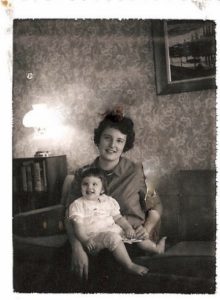 Diane: My head is spinning with this thought: Collection, collection! That would be such a fabulous book. Your little snippets with the poems.
Diane: My head is spinning with this thought: Collection, collection! That would be such a fabulous book. Your little snippets with the poems.
Alison: A few people have suggested that. It’s not a form of publishing I’m familiar with. But maybe some day!
Diane: It would be amazing. That’s just my vote.
You started your podcast more recently.
Alison: I started the podcast, Words by Winter: Conversations, reflections, and poems about the passages of life , one year ago exactly. I think almost to the day. When podcasts began their rise, I was all in. I just love that form—it’s both written and spoken. And there’s music. I wanted to do my own podcast for years, but I couldn’t settle on a focus. Then I woke up one day with the idea to make it a poem-focused, because it’s been my forever goal to spread poetry throughout the land, to make poems an everyday experience. Why shouldn’t we be reading poems the way we read the paper?
Poems are everywhere in my life. I have a little free library in my front yard, but I fill it with favorite poems instead of books. It’s a neighborhood destination. Lots of people come by for a poetry fix.
Diane: I love that.
Alison: I wanted the podcast to be a communal podcast. Listeners write in about a tough passage in life and ask for a poem to help them through. One third to one half of the episodes spring from someone calling, leaving a voicemail, or writing into the podcast with a difficult situation. It’s my honor and privilege to search for a poem that will speak to their situation and maybe feel like a tiny lifeboat for them.
“As soon as I physically learned how to write with a pencil and paper, I just started writing stories”
Diane: It’s like a “Dear Alison” with poetry, right?
Alison: A little bit, yeah. If I don’t have a reader question to springboard from, then I will look to what we’re all collectively going through. It’s a big job! A once-a-week podcast takes a lot of unseen energy.
Diane: Totally.
In terms of writing, you just run the gambit. Every type of writing and they’re all so wonderful.
Alison: Well, thank you.
Diane: When did the writing bug bite you?
Alison: You know that question grownups always ask kids, “So what do you want to be when you grow up?” First, I wanted to be a movie star. Then I wanted to be a ballerina because ballerinas are just so beautiful. I love beauty, dance, movies. But as soon as I physically learned how to write with a pencil and paper, I started writing stories about a family of kittens. One kitten was always in danger. The other kittens always saved their sibling who was in danger. Danger was a constant theme.
I grew up far, far out in the country on 150 acres of woods and streams and fields. I was the oldest of three girls in three years. My brother came along quite a bit later. My sisters were a team with their own world and their own language.
“I just wanted to write the books. I didn’t want to analyze them beyond the aspects of writing”
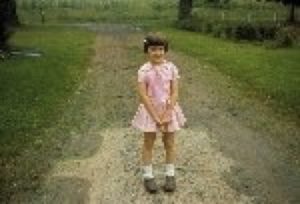 Compared to them I was a solitary child – I built myself a tree house and hay forts and I just read and read and read.
Compared to them I was a solitary child – I built myself a tree house and hay forts and I just read and read and read.
Books showed me worlds that were not my world, but showed me other ways to live and other ways of being. Many of the books I loved were about children on their own, figuring it out. My Side of the Mountain, about a boy who lived in a hollow tree. Tanned his own deer hides, made his on butternut pancakes. Robinson Caruso, where the family made tree houses and lived in them.
Those books really spoke to me. So, I think it was very natural that I would just always keep writing and want to be a writer. When I got to college, I took creative writing when I could, and I loved that. But English classes weren’t great for me because I don’t like too much analysis of literature. For me, creative writing is an art and it belongs in the arts world, whereas English classes are primarily analysis and criticism.
I don’t mean that negatively. But I just wanted to write the books, and analyze them as a writer, not a critic or analyst. So I didn’t major in English, but I always intended to be a writer. Right after college, I moved to Boston and got a tiny one-room apartment. It was the year before personal computers began to be a thing. I was a super-fast typist and had always earned money in college by typing papers for people, fifty cents a page. When I moved to Boston, I doubled my rate and put up those little signs with the tear off number at Harvard and MIT.
“But here she is, getting up at five, writing stories (and not publishing a damn thing, I might add).”
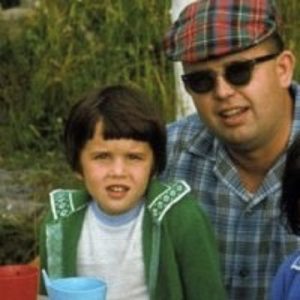 I lived half a block from a Red Line stop. I would get up early and write my stories and then type papers to pay my rent and buy food. I never had a real job. When I look back, it seems so weird—how did I even do that? My parents come from a farming and blue-collar background, yet they never tried to push me or criticized my career goal. I’m sure they were privately extremely worried. Here was this daughter who went to this chi chi college. She has a marketable degree in Chinese and Asian Studies. But here she is, getting up at five, writing stories (and not publishing a damn thing, I might add).
I lived half a block from a Red Line stop. I would get up early and write my stories and then type papers to pay my rent and buy food. I never had a real job. When I look back, it seems so weird—how did I even do that? My parents come from a farming and blue-collar background, yet they never tried to push me or criticized my career goal. I’m sure they were privately extremely worried. Here was this daughter who went to this chi chi college. She has a marketable degree in Chinese and Asian Studies. But here she is, getting up at five, writing stories (and not publishing a damn thing, I might add).
Diane: So why Chinese?
Alison: I’ve always loved languages and had a talent for them, or at least pronouncing them. Middlebury, my alma mater, is famous for its language programs. So I planned to take Russian. But the summer before I matriculated, I learned they were starting a brand-new Chinese program. I had always been drawn to China, and I thought, “This is perfect. I’ll never have another chance to study Chinese.” It was wonderful, because although I’m clearly not Chinese, I’ve always felt at home in China.
Diane: That’s fascinating.
I have a question about your writing. I know when writing memoir, no matter how much a person wants to write about something else, there are one or two life events or stories that always come through. I’m wondering if that same thing happens in fiction?
“Creating stories—is the key to my existence”
I’ve read your novels Shadow Baby, What I Leave Behind, and The Opposite of Fate and a few themes come to mind: the body holding trauma, holding memories, holding pain, even if you’re unaware that it’s doing that. There is this phantom person or people that the protagonists are searching for to fill in the gaps of their own identities. And the characters create stories they tell themselves to make sense of their world.
Alison: That right there –creating stories—is the key to my existence. Stories hurt, stories heal, stories save our lives. You don’t have to be a writer. As a human being, you’re still going to tell yourself stories to survive what is going to happen to you. So much of what happens in life we would never choose to happen. You can try to bury the things that happen to you, but if you do, much of your energy will go toward keeping that buried.
So how do you absorb what happens and, despite that, become bigger in a way because of it? Figuring that out, through storytelling, is how I do it. Or try to do it.
My body holds memories. I’m not good with dates. I don’t really think about them. But I know that the past few months, I’ve just felt this deep heaviness and pain and self-questioning of much of my adult life. What have I done with my life? What are the significant choices that I’ve made? Recently I was talking with my best friend, laying out a few troubling questions. Then I realized that next month will be twenty years since the end of my marriage. Anniversaries live in my body and affect my spirit.
“One theory about sedation is that you still feel the pain, but you don’t remember it”
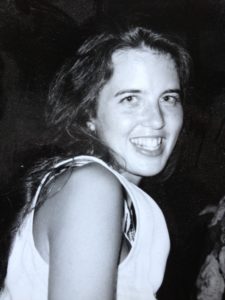 When I was twenty-four, I was in love with a man who died of suicide. And for many years thereafter, when April and early May came around, it was hard to function. I wouldn’t know why until it would wash over me, and then…of course, of course.
When I was twenty-four, I was in love with a man who died of suicide. And for many years thereafter, when April and early May came around, it was hard to function. I wouldn’t know why until it would wash over me, and then…of course, of course.
There’s physical trauma, too. One theory about sedation is that you still feel the pain, but you don’t remember it. I had minor heart surgery a few years ago, outpatient. When I woke up, my cardiologist asked me if I remembered talking to the team during my surgery. “You kept telling us to stop setting your heart on fire,” he said. “‘You’re burning my heart. Stop hurting me.’” So, clearly, I had experienced pain but had no memory of it. But your body knows these things and it holds these things. Have you had that experience in your life?
Diane: It’s very interesting when you say that. I struggled with weight my whole life, and I feel like a lot of that is holding onto stuff. I feel like sometimes weight is also a protection.
Alison: Well, sometimes girls who have been sexually abused will physically protect themselves with weight. Weight keeps you grounded to the earth, literally grounded to the earth.
“people do say that they’re left with hope, a sense that someone has come through something awful and is still fully alive and living with so much beauty”
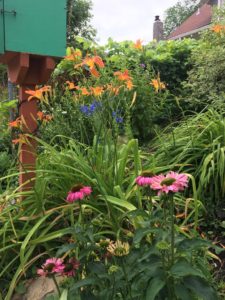
Photo credit to Dani Werner
Diane: The body is so fascinating. It really is.
You write about some very tough things. Your young adult book What I Leave Behind is about young boy who’s trying to recreate his dad’s cornbread recipe, after his dad died of suicide. There’s also a rape of a friend. Then the Opposite of Fate has a really intense inciting incident. A girl named Mallie was attacked, raped, and became pregnant. But because of a brain injury and subsequent infection that left her unconscious for sixteen months, she could not be involved in the decision to keep the baby or have an abortion.
Alison: The central question of The Opposite of Fate is this: What would Mallie want? Who makes such a life-changing decision for someone who can’t make it herself? Who gets to decide?
Diane: You don’t shy away from tough topics, that’s for sure. But there’s always so much hope in your books, in your work. There’s life, in spite of; growth, in spite of.
While the topics may be very heavy, your books are not.
Alison: I’m so glad to hear you say that. Some of the plots of my books, in summary, are just…yikes! But people do say that they’re left with hope, a sense that someone has come through something awful and is still fully alive and living with so much beauty. That is how I feel about life, and it’s my hope for my novels too.
Diane: You do this magic, weave this magical thread of hope throughout your books, which is really beautiful. And another of the themes I saw in your books is possibilities.
Alison: The possibility of beauty, yes. Yes indeed. In my novel Shadow Baby, the child narrator Clara Winter calls it the art of possibility, something she learned from her dearest friend, an old man named Georg.
“All these novels … are set in this same place, the landscape where I grew up”
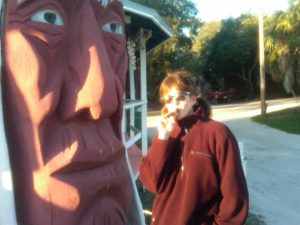 Diane: And then in The Opposite of Fate, there are the unopened fortune cookies that Mallie and Zach call “all the possible futures.”
Diane: And then in The Opposite of Fate, there are the unopened fortune cookies that Mallie and Zach call “all the possible futures.”
While Shadow Baby and Never Coming Back were published twenty years apart, they both take place in the same town, Sterns or North Sterns, right?
Alison: Yes. My first published book was Rainlight, written in the voices of four people. One of them was Mallie, who was nine years old at the time and her father had just died. Shadow Baby was the next one, which was in the voice of twelve-year-old Clara Winter. And then came Was It Beautiful, which is written in the voice of William T. Jones. All these novels, along with All Rivers Flow to the Sea and Snap, my first novel for children, are set in this same place, the landscape where I grew up.
I fictionalized the names of the area where I grew up.
Diane: Yeah, I googled Sterns, New York, and all I got was the Sterns Department Store.
Alison: Holland Patent, New York is the name of the town that I renamed Sterns.
Diane: Do these characters, who appear in several of your books talk to you and say, “Hey, I want another chance here. Write this about me.”
Alison: Earlier, you mentioned a phantom self, and that feels familiar to me. My Sterns novels are set in a phantom world of people who feel real to me. I never intended to write a story cycle with the same characters coming in and out. It just happened. It’s as if their world is a parallel world to mine.
“Writing tends to be a slow grow art, and it certainly was that way for me”
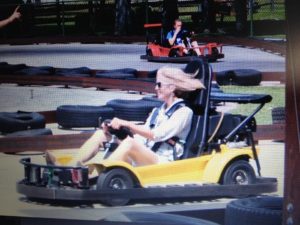 A few years ago, I realized that Anne Tyler’s books are all set in Baltimore, Richard Russo is an upstate New Yorker like me, and Elizabeth Strout is incredible with her Olive Kittredge books and her Lucy Barton. So while I didn’t consciously plan to do anything similar, I’m certainly in good company.
A few years ago, I realized that Anne Tyler’s books are all set in Baltimore, Richard Russo is an upstate New Yorker like me, and Elizabeth Strout is incredible with her Olive Kittredge books and her Lucy Barton. So while I didn’t consciously plan to do anything similar, I’m certainly in good company.
Diane: Shadow Baby really took off, right?
Alison: Yes, Shadow Baby was really popular. It was a Today Show Book Club pick, a bestselling and beloved book.
Diane: Nominated for the Pulitzer.
Alison: Yes. That was great.
Diane: So how was that, as they say, the overnight success that took you forever, right? You work forever and then boom here it is. How did that feel?
Alison: It felt great. I had no complaints at all. But also, for anyone who’s an artist it’s so rare. Musicians can be hugely talented and accomplished at seventeen or eighteen. Dancers too, are often very accomplished, very young. Painters can paint their whole lives and get better, and better, and better, as long as they can physically still paint.
Writers can too, but it tends to come much later. Writing tends to be a slow grow art, and it certainly was that way for me. I had just turned twenty-two when I began my life as an unpaid, unpublished, penniless writer. I only wrote short stories back then, but I wrote every day for six or seven years until I had one short story published in a free neighborhood tabloid.
“writing that book had been a training ground of sorts, and that anything I would write from that day on would be better than the best writing in that novel”
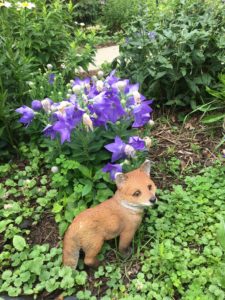
Photo credit to Dani Werner
That free publication was so exciting to me, so exciting. I kept writing another six, seven years until I had finished a novel and begun to research publication. (I didn’t know anybody else who was a writer.) But one morning, I woke up and felt heavy. I didn’t know why. But then it came to me that writing that book had been a training ground of sorts, and that anything I would write from that day on would be better than the best writing in that novel.
So I couldn’t try to publish it.
That was a hard realization, but I wrote another novel over the next couple years and felt good about that one. I sent out forty sample chapters, letters to agents, all snail mail. Got rejected over the course of a year by everyone. So I went and bought a big book called the Writer’s Guide to the Literary Marketplace and I stuck post-it notes by all the small presses that would accept submissions by people who didn’t have agents. Sent sample chapters to them. Six of them wanted to see the whole book and three of them wanted to publish it.
Diane: Wow.
Alison: The wonderful small press that published Rainlight went out of business not long afterward. But then agents started writing to me, “I loved your book. Are you working on anything now?” And in fact, I was working on Shadow Baby, but some of those agents were the same agents who weren’t interested when I’d written to them before. That pissed me off. So I went with an agent I instantly loved. He was in his twenties. He said, “I love your writing. I would love to be your agent.” I was his second client. But I loved him and now he’s an incredibly powerful agent. He and I are dear friends.
“I don’t have answers, really – I just keep growing into the questions of life”
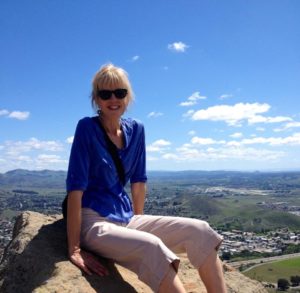 Diane: That’s wonderful. What a great story. In the twenty years between Shadow Baby and The Opposite of Fate, what have you learned?
Diane: That’s wonderful. What a great story. In the twenty years between Shadow Baby and The Opposite of Fate, what have you learned?
Alison: That’s the question, isn’t it? What have I learned? I would say I’m still learning. I don’t have answers, really – I just keep growing into the questions of life. One question I continually turn over in my mind, when I feel happy about a piece of writing or about a book, why is that? And when I feel sad and depressed about a piece of writing or a book, why?
Are my reactions coming from inside? Do they stem from the quality of the writing? Or from a memory the writing sprang from? Or do my reactions, and subsequent self-assessment, come from the outside world and the way others view my writing? Likes on Instagram, likes on Facebook, retweets – our modern gauntlet.
How much do the opinions of others influence my own experience of making art, both in the process and in the end result?
I think this question speaks directly to the choice to make a life from art, a life that centers around a creative process. It’s probably something that can be applied to all kinds of work in life, and life itself. But how much am I influenced by the world’s reception of my work?
“Much of my life has been pushing out against an encompassing framework that wants to categorize people, artists, life”
Diane: And? How much are you?
Alison: I’m influenced more than I want to be. It pains me to admit that, but I have to be honest with myself. I’m at a time of reckoning with my life and I’m just trying for deep honesty. I would say brutal honesty, but I don’t like the word brutal and I don’t want to be brutal. I’m trying to be calm, rational, honest about the origins of the ways I look at myself and the ways I look at my work.
Some of the books that are nearest and dearest to my heart have received almost no notice from the outside world. I’m working with myself not to be influenced by that.
A useful question to ask is what have I learned in the last twenty years? What have I learned in the last forty years? What do I hope to learn in the next five? Those are great questions and I don’t have great answers.
But I do know that I’m trying to come to the true heart of who I am and the way I have lived and hope to live in the world that is apart from my identity as the oldest child in my family of origin. Apart from my identity as a mother who divorced my children’s father. Apart from my identity as someone who has published so many books and still will be categorized as a novelist, or a children’s book writer, or a picture book writer.
I don’t want categorization. Much of my life has been pushing out against an encompassing framework that wants to categorize people, artists, life. I rebel against categorization and I rebel on behalf of other people as well. I deeply question categorization.
“I love rules, but I have to make them up myself”
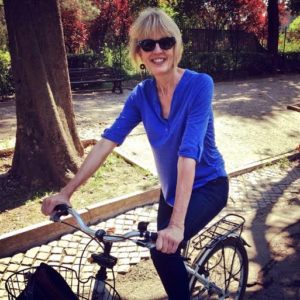 Diane: You mentioned that you’ve heard the rules, but you break them, right?
Diane: You mentioned that you’ve heard the rules, but you break them, right?
Alison: Or I ignore them. And I think that I have benefited from doing that in my life. When I began writing picture books, I didn’t know the rules for them. I didn’t know that they are 32 pages and less than 500 words, even though I instinctively made my books like that, probably because reading so many picture books over so many years instinctively teaches you a sense of that framework.
But I’ve heard many writers say things like, “I’m a poet. I could never write a novel. I’m a fiction writer, I could never write a poem. I’m a memoir writer. I don’t see why people have to make things up.” I don’t understand any of those statements. Can’t we all do everything? I always want a challenge. I’m restless. For example, I spent the winter and spring studying screenwriting. I’m working on adapting What I Leave Behind into a feature length screenplay.
Diane: Oh, that’s fabulous.
Alison: It’s so exciting to me to learn a whole new form of writing because it’s so different from anything I’ve done before. And I feel tiny explosions in my brain.
Diane: That book has 100-word chapters, right?
Alison: Yes. 100 chapters of 100 words.
Diane: You make your own rules.
Alison: I love rules, Diane, but I have to make them up myself.
Diane: That’s fabulous.
“you love your children more than anything from the moment you’re born, and you spend so much of your life waving goodbye to them”
Alison: For every book I write, I make up unseen little rules that no one would ever notice. If the jacket cover of What I Leave Behind didn’t tell you that that book was 100 chapters of 100 words each, you wouldn’t know it. Someone once called my odd, arbitrary, ever-changing rules for each book “enabling constraints.” An arbitrary framework in which to write works really well for me. A timer does, too. Most of my writing is timed because I’m very easily distracted. So I set an alarm and just focus, focus, focus until that alarm goes off.
Diane: I love it. I want to spend a minute or two on Someday. I bought it for myself for Mother’s Day.
Alison: I love that.
Diane: It’s such a dear book. It’s so beautiful. Number one New York Times bestseller, translated into more than twenty languages. You wrote on Twitter it has made people cry in over twenty languages. What universal feeling or experience do you think you captured that affects people so deeply?
Alison: Well, I’ll use the words of my rural, raised-a-farmer dad on whom my recurring beloved character William T. Jones is based. My father is not a man given to sentimentality, nor to expressions of emotion. But about Someday, he once said, “It’s a beautiful book and it makes people cry because it’s true. It’s what happens.” And by “what happens” he meant that you love your children more than anything from the moment you’re born, and you spend so much of your life waving goodbye to them.
“life does go by and we do die, and we become the beloved memories. Beloved if we’re lucky”
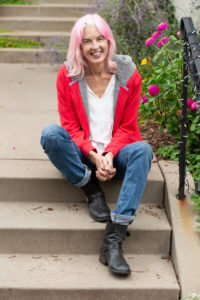 Most parents are so frantically busy when their kids are small, and then poof, they’re grown. Just yesterday I took my older daughter to the airport after the first time I’d seen her in ages. I was taking the garbage out later and feeling a familiar crushing sadness.
Most parents are so frantically busy when their kids are small, and then poof, they’re grown. Just yesterday I took my older daughter to the airport after the first time I’d seen her in ages. I was taking the garbage out later and feeling a familiar crushing sadness.
I heard myself say, to the garbage bins, “I just wish I could go back and do it all over. I wish I could just have my babies back. I’d be such a better parent.” Something in Someday gets to the core of that emotion. Even if you know you’re being a great parent at the time you’re raising your children, there’s something in that book that speaks to that longing, that nostalgia. The fact that life does go by and we do die, and we become the beloved memories. Beloved if we’re lucky.
Diane: I think that’s a universal truth.
You mentioned that there are a few books that you’ve written that are so dear to your heart, but they didn’t get the recognition. Which ones?
Alison: I would say Never Coming Back. Recognition and sales are so based on the vagaries of fate and who reads it. When Someday was published, Michele Norris had me read it out loud on NPR and did an interview, and it became an instant bestseller. It often takes just one little tiny twist of fate like that. I wish Never Coming Back had a little twist of fate like that.
“You often see lots of people talking or writing about how to silence the inner critic. I don’t even try”
Another is Pablo and Birdy, about little Pablo and his parrot. Pablo washed up on an island after a storm, strapped into an inflatable pool, his parrot watching over him. Pablo was raised by a wonderful man named Emmanuel who becomes, for all intents and purposes, his father. Pablo is adored. Everyone loves this little boy. But he always wonders about his first family. Why did he wash up alone? Had he been a bad baby? Meanwhile, legend has it there’s a certain parrot capable of reproducing all the sounds ever been made in the world. Pablo dreams of finding one of those parrots, that he might hear his first family and know his true story. It’s a book that goes to the heart of family, of fate, of adoption, of identity.
Pablo and Birdy received little recognition too. It’s that twist of fate thing, which also goes back to the question we talked about earlier, about where do you get your sense of accomplishment, of self-worth? Where do you stand firmly on the ground of what you have done and sown?
Diane: In another interview I read, you talked about self-doubt. You said you accept self-doubt. What does accepting self-doubt look like?
Alison: That may have been in response to a question about the inner critic. You often see lots of people talking or writing about how to silence the inner critic. I don’t even try. The inner critic is just sitting on my shoulder throughout life. Why spend a lot of energy trying to push her away and silence her so that I can be magically free and just glide into writing and be in the groove? Doesn’t feel real to me.
“Accept the help that you can from the inner editorial critic. But then the nasty inner critic … Rather than tie myself into conniptions trying to silence it, I just say, ‘Oh, there you are again. Hello’”
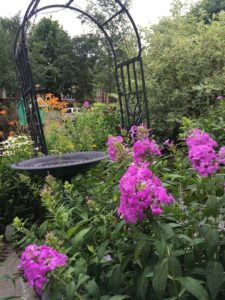
Photo credit to Dani Werner
I think it’s okay to have an inner critic that looks at your work with a view to making it better. Most drafts are not very good. Some people say they happily write all day and they’re happy with most of what they’ve written. I’ve been both a writer and a teacher my entire life. I have read writing that comes from that happy, write all day place, and it’s usually not very good.
Understand that I’m not criticizing the joy of writing happily and uncritically. I’m just saying that the unrevised end result is usually not very good. So number one, accept the help that you can from the inner editorial critic. But then the nasty inner critic, the one that’s always saying things like, “You’re just a failure. You think you’re a good writer, you’re not. You think you’ve written good books, you haven’t.” Rather than tie myself into conniptions trying to silence it, I just say, “Oh, there you are again. Hello.”
My partner and I have discussions about this. Sometimes I’ll say, “How many times did you call yourself a fucking failure today?” Usually a few. He too is a full time artist. He’s a painter and he’s a really good painter and his paintings hang on walls all over the world. Yet here we are, calling ourselves fucking failures. That’s why it makes more sense to me to just say to the inner critic, “Oh, there you are. Have a good day.”
“Life has taught unpatient me how to be patient. It’s also taught me a certain serenity, because shit happens that’s out of our control”
Diane: And then what?
Alison: And then just move on alongside that. I don’t really have a lot of time and energy to spend trying to shut out the forces, human or imaginary, that would bring me down. I’d rather just accept and ignore them and get to my work because my work is what both gives me energy and makes me feel that I’m happy with the day. Even if the writing of the day is terrible, it’s my grounding force in life.
Diane: I have two more, two more questions. The first is about growing older, what is that like for you?
Alison: Growing older is so interesting to me. I still feel young. But the fact is I’m not young, so it goes to something I’ve wondered about all my life, which is that maybe we’re always young inside, but our bodies just age and then we die.
There’s no way out of it, really. And as someone who was born an old soul sort of child, in some ways I feel as if I’ve finally caught up to myself. At this age, I have so much more wisdom than I did and so much more patience. Life has taught unpatient me how to be patient. It’s also taught me a certain serenity, because shit happens that’s out of our control.
In growing older, there’s an acceptance of what is out of my control. My body will age, I will die. Out of my control. So how do I make every day a day that I want to have lived? It’s a winnowing. Not just going through your belongings and getting rid of things. Going through your emotions and your mental closets and thinking, “What can I let go and what do I want to let go, and how can I do that?”
“Pink hair seems to make other people happy, and that makes me happy. What’s not to like?”
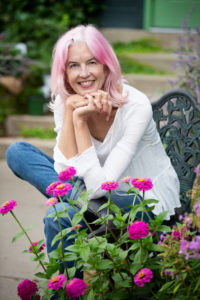 I have more problems with the “how.” But with age comes much more happiness. Much loss, too—you lose people you love, and dreams you had of what your life might be—but more happiness. I wouldn’t have thought that earlier.
I have more problems with the “how.” But with age comes much more happiness. Much loss, too—you lose people you love, and dreams you had of what your life might be—but more happiness. I wouldn’t have thought that earlier.
Diane: Yeah. It’s a great secret, right?
Alison: Yeah.
Diane: So my last question is the most profound: what’s with the pink hair? I love it by the way.
Alison: Diane! I was going to say ALL these damn questions have been profound. But the pink hair. The women in my family go white early. I started out with dark brown hair, and for many years colored it to keep it my “natural” shade. But what is our natural shade, really? We change throughout our lives and what is natural at one point, is not natural at another point.
I decided to let my hair be whatever it wanted. It’s white, it’s blonde, bits of dark brown here and there. And a few years ago, I wanted to have some fun so I began color conditioning it pink. I don’t think I’ll ever go back. Pink hair seems to make other people happy, and that makes me happy. What’s not to like?
Diane: I love it. And there you go—the story of the pink hair!
Alison, I just thank you so much for doing this! It was so wonderful getting to know you better!
Alison: Thank you, Diane! I loved talking with you and I love your blog.
As Always, I’d love to hear your thoughts. Please leave a comment or send an email.
See you in October!
XOXO
Diane

And If You Know Another Amazing Woman (Or Person Of Any Gender!) Who Might Like To Join Us At WomanPause, Please Forward This Link: WomanPause



“–and get to my work because my work is what both gives me energy and makes me feel that I’m happy with the day. Even if the writing of the day is terrible, it’s my grounding force in life.”
Thank you both. I will reread this interview often.
Diane, your website page is fantastic!
Thank you, Greta! Glad the interview resonated. Alison has so much wisdom and shares it so generously! (And thanks bout my page!)
“–and get to my work because my work is what both gives me energy and makes me feel that I’m happy with the day. Even if the writing of the day is terrible, it’s my grounding force in life.”
Thank you both. I will read this interview over and over.
This is such an incredible interview. I’m sitting here in bed at 12:22 am, reading this, and as she always does, the things Alison says go right into my soul, and so I am weeping here in my bed….in the best way. What a beautiful, beautiful interview. Diane, what wonderful questions. My beautiful friend, I love you so! Xoxoxo
Thank you Laurie! And oh, do I hear you! “The things Alison says go right to my soul.” Always!
I loved talking with you, Diane. Thank you so much for this conversation!
Alison! It was my great pleasure! Thank you for the conversation!! XO